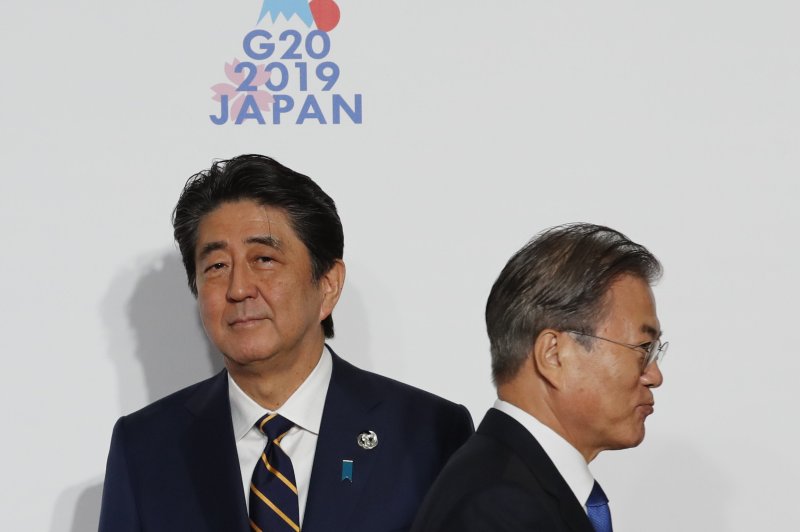Japanese Prime Minister Shinzo Abe (L) and South Korean President Moon Jae-in (R) have not resolved disputes over wartime compensation and trade that began in 2019. File Photo by Kim Kyung-hoon/EPA-EFE/POOL
June 2 (UPI) -- South Korea is to reopen a complaint at the World Trade Organization, following Japan's refusal to lift trade restrictions.
Na Seung-sik, department head of trade and investment at Seoul's ministry of trade, industry and energy said Tuesday at a press briefing Seoul's outreach to Tokyo has not been met with the desired response, Yonhap reported.
"We have reached the conclusion that we cannot proceed with normal negotiations [with Japan], which was the premise of suspending the complaint at the WTO," Na said.
The South Korean decision to reopen the WTO complaint comes after it requested the Japanese government lift trade regulations that went into effect in July.
Japan's trade ministry had said last year individual applications will be needed for permission to export to South Korea three materials: fluorinated polyimide, hydrogen fluoride and resists. The products are used to make semiconductors, flat-screen TVs and smartphones, some of South Korea's top exports.
The Japanese decision followed South Korea's support for compensation of Korean forced laborers recruited during World War II. Japan had said at the time the move had caused "significant damage to the relationship of mutual trust."
As South Korea said Japan's response does not "meet expectations," Korean companies could be stepping in to fill the void in the aftermath of the trade dispute.
Local television network MBC reported Tuesday hydrogen fluoride, a core component of semiconductors, is being produced domestically and production lines have doubled since Japan placed restrictions on exports.
Resists, which also are chemical materials, are being sourced from DuPont Corp. in the United States, according to the report.















